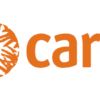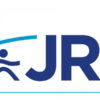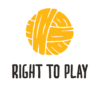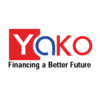Eligible Applicants
The category of this position is not open to Ugandan nationals. Read additional information before applying.
Procedures and Eligibility
This position is open to all eligible applicants provided that requirements regarding professional experience, academic qualifications, language, etc. are fulfilled.
Duties and Qualifications
¿ Coordinate and oversee the Opportunity Fund for Youth Empowerment project in Uganda including planning, implementation, monitoring and reporting, ensuring effective coordination with all concerned units in Kampala and Sub/Field Offices and alignment with relevant global, regional and country level strategies and guidance.
¿ Lead coordination with UNICEF and ILO in the delivery of the Opportunity Fund for Youth Empowerment, leveraging comparative strengths and existing programmes / capacities of each agency to maximize results for refugee youth
¿ Lead and coordinate the development of a comprehensive youth strategy in the refugee context that includes all refugee hosting districts, aligned to national youth agenda.
¿ Work closely with sectoral actors, including community-based protection, child protection and GBV, livelihoods and education, to strengthen multisectoral collaboration on youth-related issues within the Uganda refugee response
¿ Support capacity building and institutionalization of youth programming within UNHCR Uganda
¿ Monitor the implementation of youth programs and assess effectiveness and where required develop innovative approaches to address protection concerns of youth
¿ Coordinate the strengthening of networks and mechanisms for meaningful participation and engagement of young people in the refugee response in Uganda, ensuring alignment with related national and district level structures and inclusion of refugee youth therein
¿ Coordinate the delivery of the Regional Youth Peacebuilding Programme for youth from South Sudan in Uganda
¿ Manage the resources associated with the Opportunity fund for Youth Empowerment project in Uganda
¿ Undertake any other duties as assigned by supervisor.
Minimum Qualifications
Years of Experience / Degree Level
¿ For those with an undergraduate degree, minimum six years of progressively responsible professional experience in youth engagement and development, child protection, gender-based violence, community-based protection, refugee protection, gender, peacebuilding and social cohesion, or other related fields, of which minimum two years in the field, preferably with particular focus on youth and adolescent programming.
¿ For those with a post-graduate degree, minimum five years of progressively responsible relevant professional experience in the above fields, of which minimum two years in the field.
¿ Prior extensive work experience in displacement (refugee) situations
¿ Prior extensive experience in project management and in coordinating with multiple partners and stakeholders
Undergraduate degree (equivalent of a BA/BS) and / or post-graduate degree (equivalent of a Master) in a related field, such as international law with focus on refugees and migration, political sciences, international relations, social sciences, social work, human rights, gender studies, anthropology, development studies and social development, with good knowledge of international refugee and human rights law
Essential
- Demonstrated knowledge/experience of adolescent / youth programming and supporting innovative approaches in response to youth and adolescent sector challenges, particularly as they relate to displacement and emergencies.
- Familiarity with community-based protection initiatives and youth empowerment methodologies and practices
- Coordination and stakeholder management skills
- Project management skills
- Excellent written and oral communication skills in English, including strong drafting skills
Language Requirements
For International Professional and Field Service jobs: Knowledge of English and UN working language of the duty station if not English.
For National Professional jobs: Knowledge of English and UN working language of the duty station if not English and local language.
For General Service jobs: Knowledge of English and/or UN working language of the duty station if not English.
All UNHCR workforce members must individually and collectively, contribute towards a working environment where each person feels safe, and empowered to perform their duties. This includes by demonstrating no tolerance for sexual exploitation and abuse, harassment including sexual harassment, sexism, gender inequality, discrimination and abuse of power.
As individuals and as managers, all must be proactive in preventing and responding to inappropriate conduct, support ongoing dialogue on these matters and speaking up and seeking guidance and support from relevant UNHCR resources when these issues arise.
Additional Information
Shortlisted candidates may be required to sit for a test. Only shortlisted candidates will be notified. No late applications will be accepted.
Recruitment as a UNHCR staff member and engagement under a UNHCR affiliate scheme is subject to proof of vaccination against COVID-19.
UNHCR is committed to diversity and welcomes applications from qualified candidates regardless of disability, gender identity, marital or civil partnership status, race, color or ethnic and national origins, religion or belief, or sexual orientation.
Female candidates are encouraged to apply.
UNHCR does not charge a fee at any stage of the recruitment process (application, interview meeting, processing, training or any other fees).
See below for this postion’s Operational Context
Operational Context
As of end 2021, Uganda hosted some 1.573 million refugees and other persons of concern in the country, including those originating from South Sudan, Democratic Republic of Congo, Burundi, Somalia, Rwanda and others. 93 percent of the population of concern live in the settlements, while 7 percent reside in urban areas in Kampala. 81 percent of the population comprise women and children, while 3 percent are older persons and 23 percent are youth. Uganda’s progressive refugee policy grants refugees freedom of movement, the right to seek employment and establish businesses, and to access public services such as education, health care and justice.
Despite a favourable protection environment, the number and vulnerability of refugees, scarcity of resources and stress on social-economic amenities continue to hamper the quality of protection. Social service delivery in the hosting Districts is overstretched requiring support for enhancement to meet the needs of all, both the refugees and their hosts. In order to protect and enhance the asylum space and promote peaceful co-existence, the refugee response must address the perspectives and expectations of the communities hosting refugees.
Youth are increasingly a more significant proportion of the populations that UNHCR works with and for. In the refugee context in Uganda, young peoples’ transitions to adulthood are marked by exposure to complex protection risks that adversely affect their development and wellbeing. With limited access to post-primary education and livelihoods opportunities, young people are often unable to plan a future life for themselves. Yet young people are resilient and possess the ability to adapt, frequently playing substantive roles in positive change. They self-organise, form groups, and offer peer-to-peer and wider community support, and can drive positive change in their communities. However, the lack of engagement and empowerment opoportunities for refugee youth limit their civic and economic engagement, resulting in young people often resorting to negative coping mechanisms.
It is therefore of utmost importance to invest in programmes focused on empowerment and meaningful engagement and participation of young people, including adolescent girls and young women, those with disabilities and other diverse backgrounds. Nurturing their existing skills and capabilities, supporting their empowerment, and enhancing opportunities for their meaningful participation will support them to realize their potential as leaders, contribute to their communities, and drive positive, long-term change in their communities and their lives, including addressing protection concerns and social norms, promoting social cohesion and peaceful co-existence, providing input to programming, and advocating on issues that are important to them and their communities.
UNHCR, jointly with UNICEF and ILO, received a grant under the Opportunity Fund from the Government of the Netherlands, with the overall objective to empower youth to be effective partners and to lead and drive change in their communities and their lives, with Uganda being one of the target countries for implementation. In Uganda, the project will incorporate activities under the regional youth peacebuilding programme for youth from South Sudan which aims to empower youth as peacebuilders and changemakers to promote social cohesion amongst communities.
Click Here to Apply
More Information
- Salary Offer 0-ush50000000 USD 0-ush50000000 Month
- Address Kampala, Kampala, Uganda










